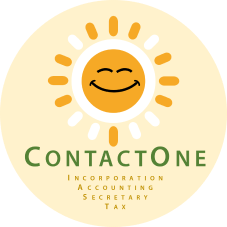In this section, you will gain a brief understanding on how to identify if a business expense is considered tax deductible expense or a non-deductible expenses (disallowed expenses). It is important to know that not all expenses that are taken up in your accounting books can be allowed for tax deductions.
Basis of Determining if an Expense is Tax Deductible
You can claim tax deduction for expenses that are wholly and exclusively incurred in the production of income.
The following conditions must be met before any deductions are made:
- The expenses must be revenue in nature, (This means that the expenses are incurred in the normal day-to-day operations of the company). Capital expenditure is not allowed as a tax deduction
- Example: if you buy a new goods vehicle or a commercial property for own use)
- The deduction must not be prohibited under the Income Tax Act
- Example: you may incur petrol costs in the day to day operations while driving your brand new Porsche, but the Act prohibits the deduction of all expenses related to S-Plate vehicles).
- The expenses must be incurred. Contingent liability is not allowable as a tax deduction.
- Contingent liability refers to a liability that may be laden onto the debts of the company but the occurrence has not crystalized as of today.
Non-Exhaustive List of Deductible Expenses (A-Z)
- Accounting fee
- Administrative expenses
- Advertisement
- Auditors’ remuneration
- Bad debts (trade debtors)
- Bank charges
- Bookkeeping services
- Commission
- CPF, skills development levy, foreign workers’ levy
- CPF Statutory contributions to CPF
- CPF Contributions to employees’ Medisave Account subject to maximum deduction of $1,500 for each employee per year. Such deductions are allowed as medical expenses, subject to Medical Expense cap.
- CPF Topping-up of Employees’ CPF Minimum Sums
- CPF Voluntary cash contributions to self-employed persons’ Medisave Account
- Directors’ fees
- Directors’ remuneration
- Employee Equity-Based Remuneration (EEBR) Scheme
- Employment Assistance Payment (EAP)
- Entertainment
- Exchange loss arising from transactions that are trade and revenue in nature
- Exhibition expenses
- Impairment loss on trade debts
- Income tax borne by employer in according to employment contract
- Insurance premium like group term life insurance where employees are the intended beneficiaries, keyman insurance, workman injury compensation
- Insurance for underwriting bad trade debts
- Interest expenses
- Legal and professional fees incurred with regards to trade and revenue transactions
- Medical expenses (restricted to 1% of total remuneration)
- Motor vehicle expenses (goods / commercial vehicles, e.g. van, lorry and bus)
- Office upkeep
- Periodicals & newspapers
- Postage
- Printing & stationery
- Property tax
- Provision for bad and doubtful debts (specific) (Please note that for income tax purposes, impairment losses incurred on financial assets on revenue account will be allowed as a deduction and any reversal amount will be taxed.)
- Provision for obsolete stocks (specific)
- Rental of business premises
- Registration of patents, trademarks, designs and plant varieties
- Repairs and maintenance
- Research and development
- Retrenchment payments – Contractual retrenchment payments
- Retrenchment payments – Ex-gratia retrenchment payments and outplacement support costs, where there is no complete cessation of business
- Secretarial fees
- Staff remunerations like salary, bonus and allowances
- Staff training
- Staff welfare/benefits
- Stock obsolescence
- Supplementary Retirement Scheme (SRS)
- Tax fees (service fees paid to tax agent)
- Telephone bills
- Transport (public transport and goods / commercial vehicles)
- Travelling
- Wages
- Water & electricity
Non-Exhaustive List of Non-Deductible Expenses (A-Z)
- Amortisation
- Bad debts (non-trade debtors)
- Certificate of entitlement (COE) for motor vehicles (If the vehicle qualifies for capital allowance (goods / commercial vehicle), the cost of COE can be included as part of the cost of vehicle and you can claim capital allowance for it.)
- CPF Voluntary contributions to CPF exceeding the statutory rate
- Depreciation (In place, you may claim capital allowances)
- Donations (you can claim for deduction on donations made to an approved Institution of a Public Character (IPC) or the Singapore Government which benefit the local community.)
- Entrance fee for country club or other clubs
- Exchange loss arising from transactions that are non-trade or capital in nature
- Expenses incurred prior to commencement of business (However, revenue expenses incurred 1 year before the accounting year in which the company earns its first dollar of business receipt are tax deductible from YA2012 onwards)
- Fixed assets written off
- Fixed assets acquisition cost (you may claim capital allowances)
- Fines
- Goodwill payment
- Impairment loss on non-trade debts
- Singapore income tax and any tax on income in country outside Singapore
- Installation of fixed assets
- Interest expenses relating to non-income producing assets
- Legal and professional fees incurred relating to non-trade or capital transactions
- Medical expenses (amount exceeding 1% of total remuneration)
- Motor vehicle expenses (“S” plate private passenger cars)
- Penalties
- Prepaid expenses which are not relating to the relevant basis period
- Private and domestic expenses (expenses not incurred for business purpose)
- Private hire car
- Provision for bad and doubtful debts (general)
- Provision for obsolete stocks (general)
- Renovation or refurbishment works (you may claim Section 14Q deduction for qualifying expenditure incurred)
- Retrenchment payments – Ex-gratia retrenchment payments and outplacement support costs, where there is a complete cessation of business.
- Transport (“S” plate private passenger cars)

